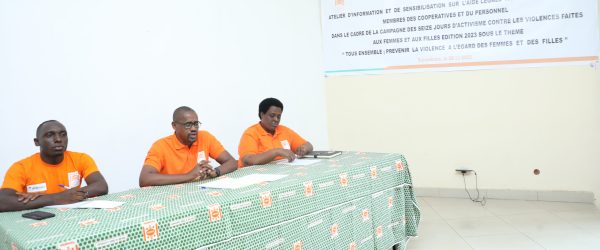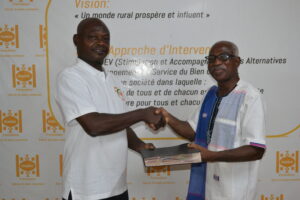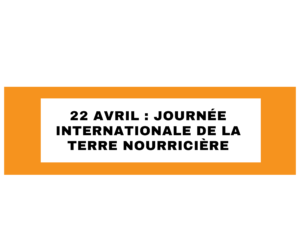Bujumbura, 29/11/2023, Inades-Formation Burundi is organising an information and awareness-raising workshop on legal aid for cooperative member leaders and its staff.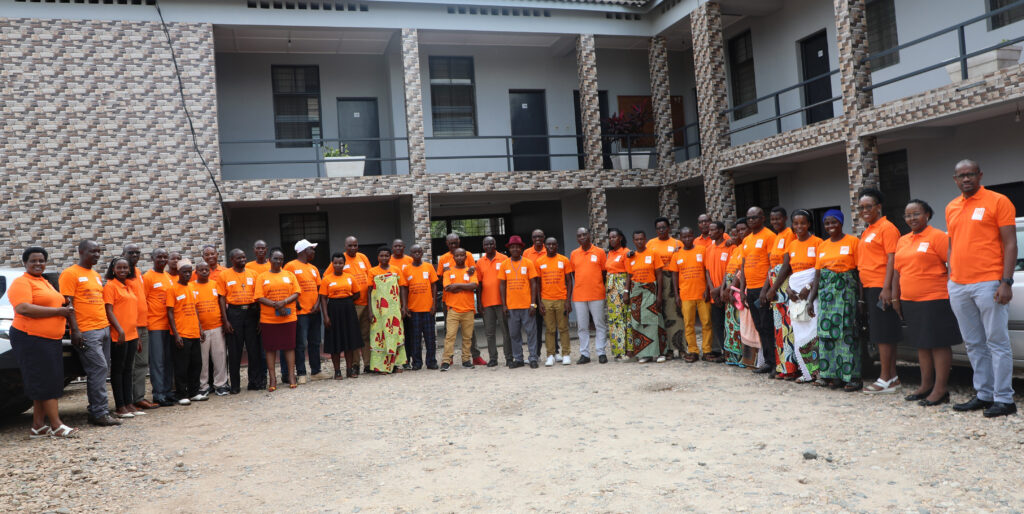 The event was attended by a representative of the Ministry of National Solidarity, Social Affairs, Human Rights and Gender. This activity is part of the 16 days of activism campaign against violence against women and girls, 2023 edition, under the theme “Together, preventing violence against women and girls”.
The event was attended by a representative of the Ministry of National Solidarity, Social Affairs, Human Rights and Gender. This activity is part of the 16 days of activism campaign against violence against women and girls, 2023 edition, under the theme “Together, preventing violence against women and girls”.
In his opening speech, the Director of Inades-Formation Burundi, Mr NIGEZE Joseph, said that this activity was part of the organisation’s institutional programmes in accordance with its gender policy.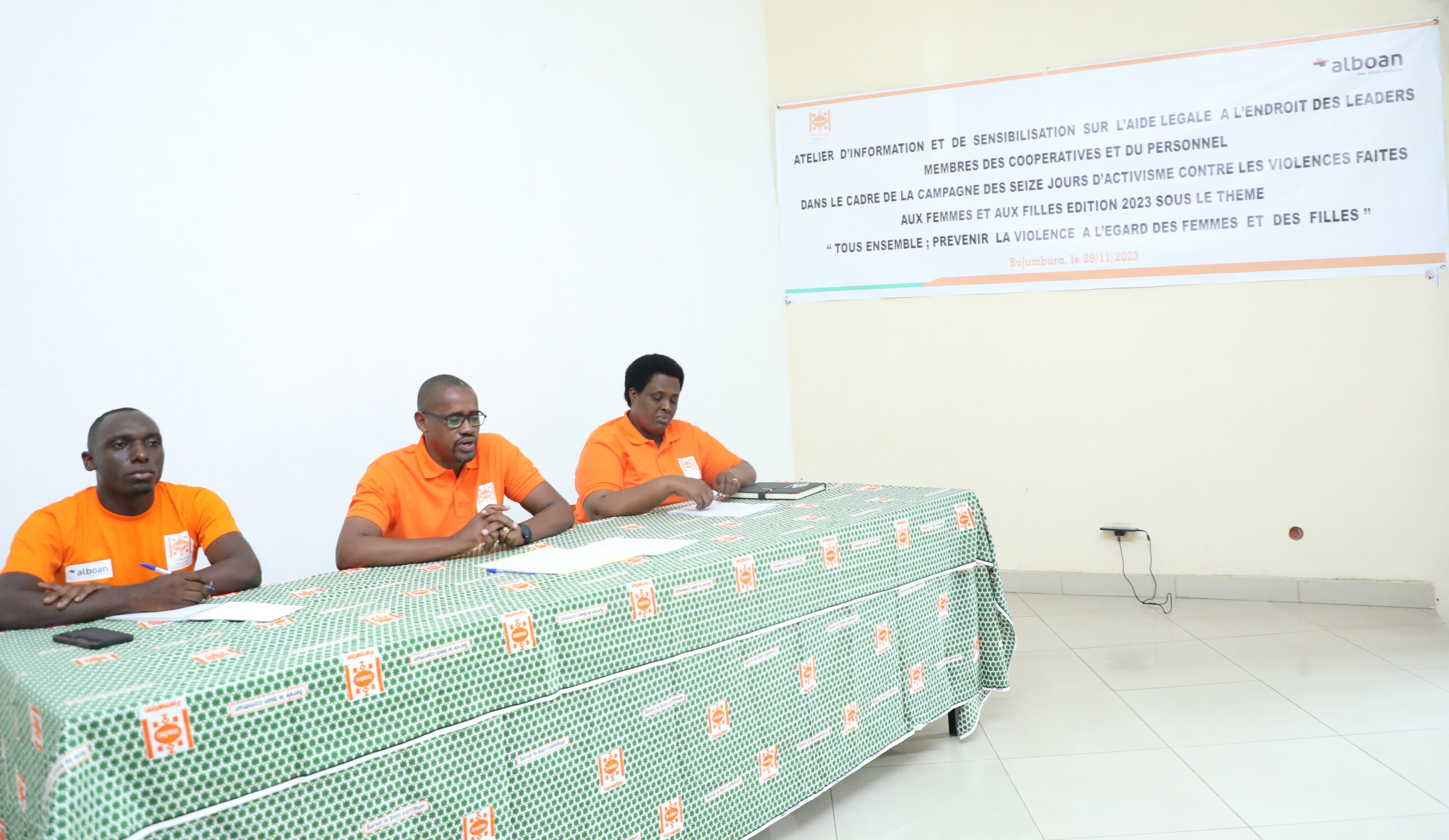 Legal aid must be considered to support victims of gender-based violence (GBV), who often find themselves at an impasse. To deal with this, the organisation has designed information and awareness-raising tools based on the testimonies of model couples. These tools will be used every time to mobilise communities,” adds the Director.
Legal aid must be considered to support victims of gender-based violence (GBV), who often find themselves at an impasse. To deal with this, the organisation has designed information and awareness-raising tools based on the testimonies of model couples. These tools will be used every time to mobilise communities,” adds the Director.
In her introduction, the gender focal point at Inades-Formation Burundi, Ms Marie Reine NDORICIMPA, briefly outlined the background to the event.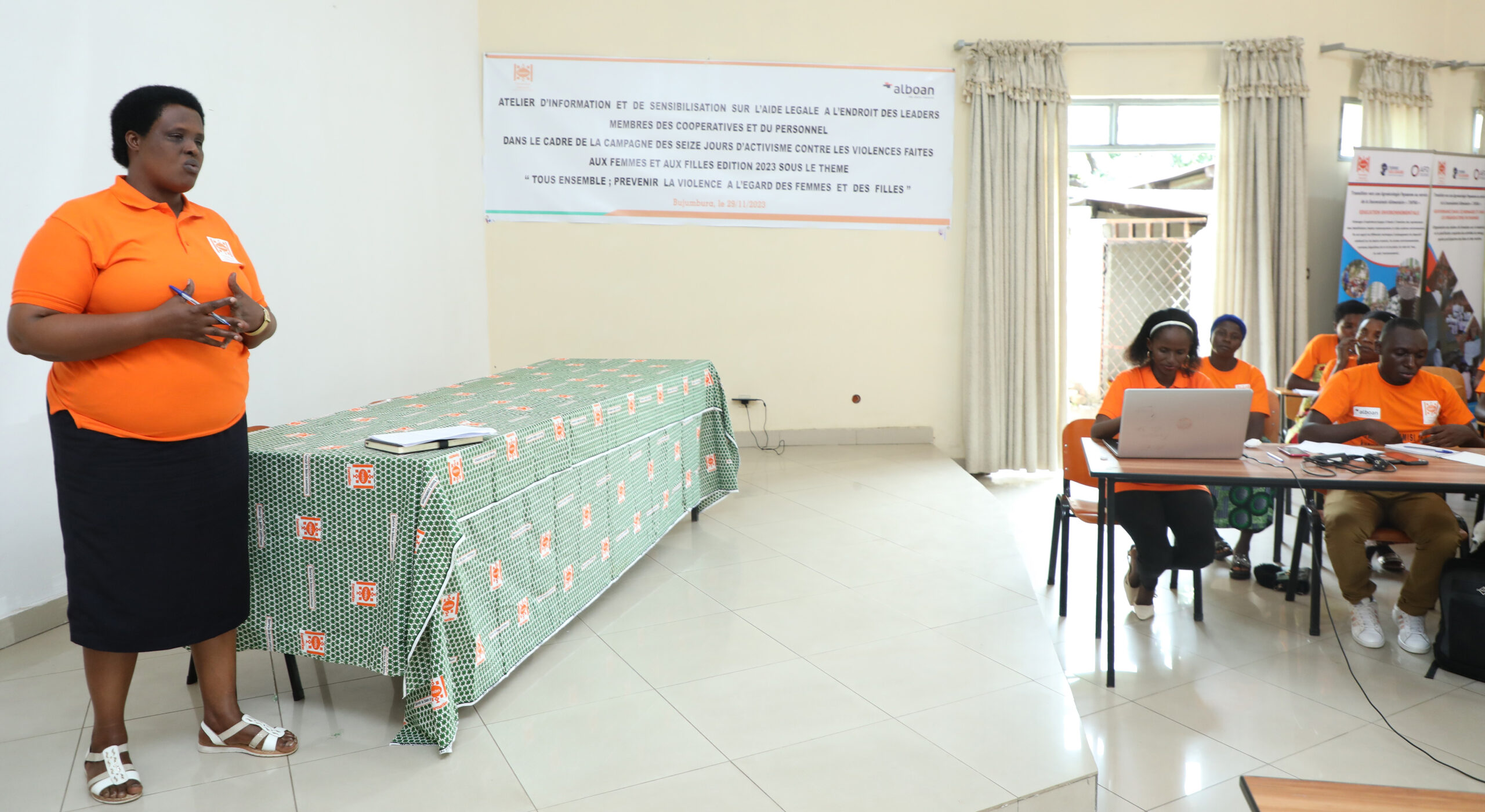 “The date of 25 November was chosen to commemorate the violent murder of three MIRABAL sisters on 25 November 1960 in the Dominican Republic, because they were campaigning for their rights. They became the symbol of the fight to eradicate the scourge of violence against women”. She added: “To immortalise this resistance, on 19 October 1999, at the 54th session of the United Nations General Assembly, representatives of the Dominican Republic and 74 Member States presented a draft resolution to declare 25 November the International Day for the Elimination of Violence and All Forms of Discrimination against Women. The date was officially recognised by the United Nations, which defines violence against women as “any act of gender-based violence that results in, or is likely to result in, physical, sexual or psychological harm or suffering to women, including threats of such acts, coercion or arbitrary deprivation of liberty, whether occurring in political or private life“.
“The date of 25 November was chosen to commemorate the violent murder of three MIRABAL sisters on 25 November 1960 in the Dominican Republic, because they were campaigning for their rights. They became the symbol of the fight to eradicate the scourge of violence against women”. She added: “To immortalise this resistance, on 19 October 1999, at the 54th session of the United Nations General Assembly, representatives of the Dominican Republic and 74 Member States presented a draft resolution to declare 25 November the International Day for the Elimination of Violence and All Forms of Discrimination against Women. The date was officially recognised by the United Nations, which defines violence against women as “any act of gender-based violence that results in, or is likely to result in, physical, sexual or psychological harm or suffering to women, including threats of such acts, coercion or arbitrary deprivation of liberty, whether occurring in political or private life“.
With the presentation by Ms NIJIMBERE Aline, a lawyer and gender expert, participants were able 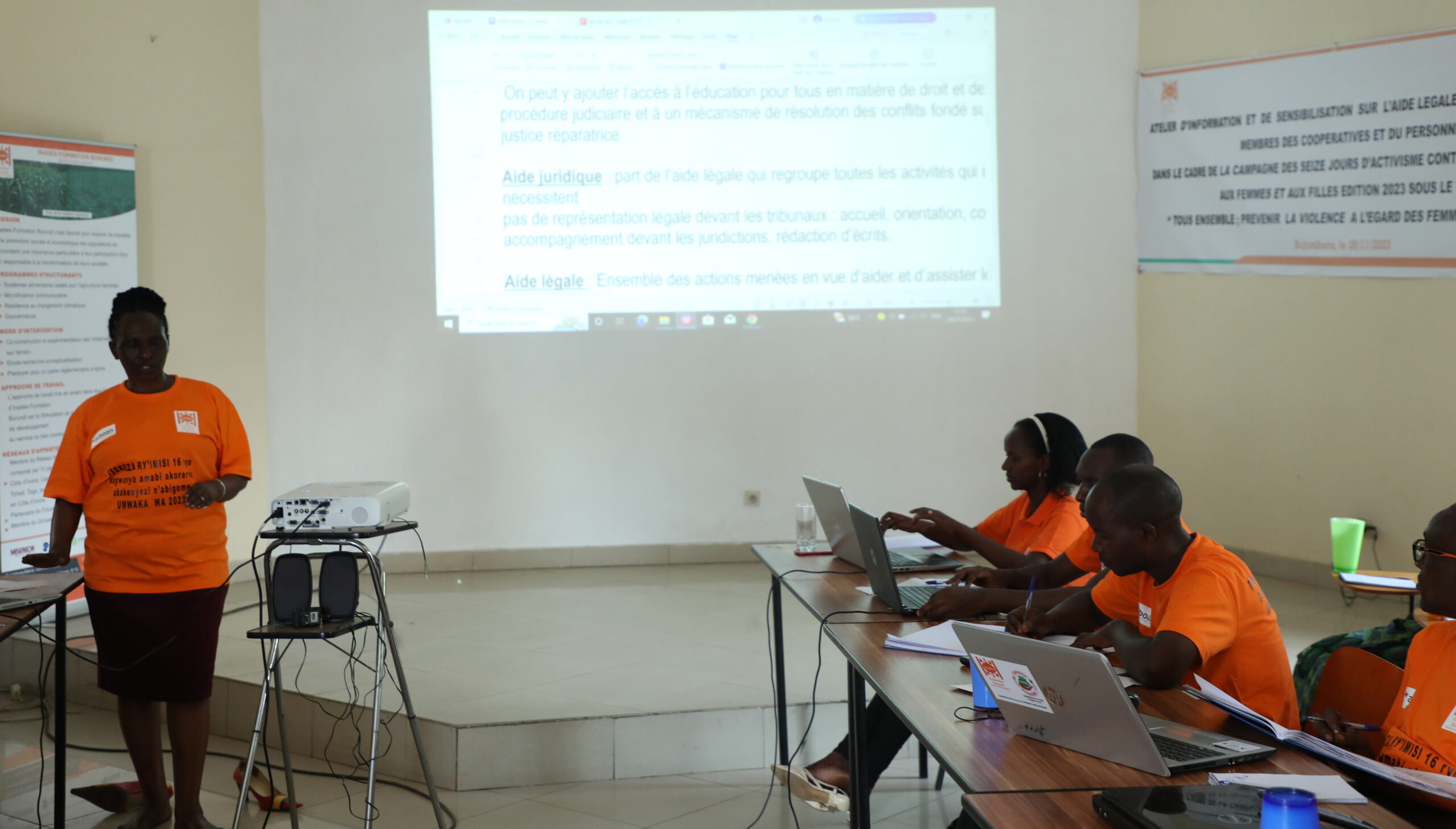 to recall the meaning of different types of GBV. They were also informed about legal procedures and how to legally help victims of GBV. She deplored the fact that Burundi has no law on inheritance or matrimonial property regimes. This accentuates social inequalities to the detriment of women and girls, and is an ultimate cause of GBV. However, this does not prevent men from also being victims of GBV.
to recall the meaning of different types of GBV. They were also informed about legal procedures and how to legally help victims of GBV. She deplored the fact that Burundi has no law on inheritance or matrimonial property regimes. This accentuates social inequalities to the detriment of women and girls, and is an ultimate cause of GBV. However, this does not prevent men from also being victims of GBV.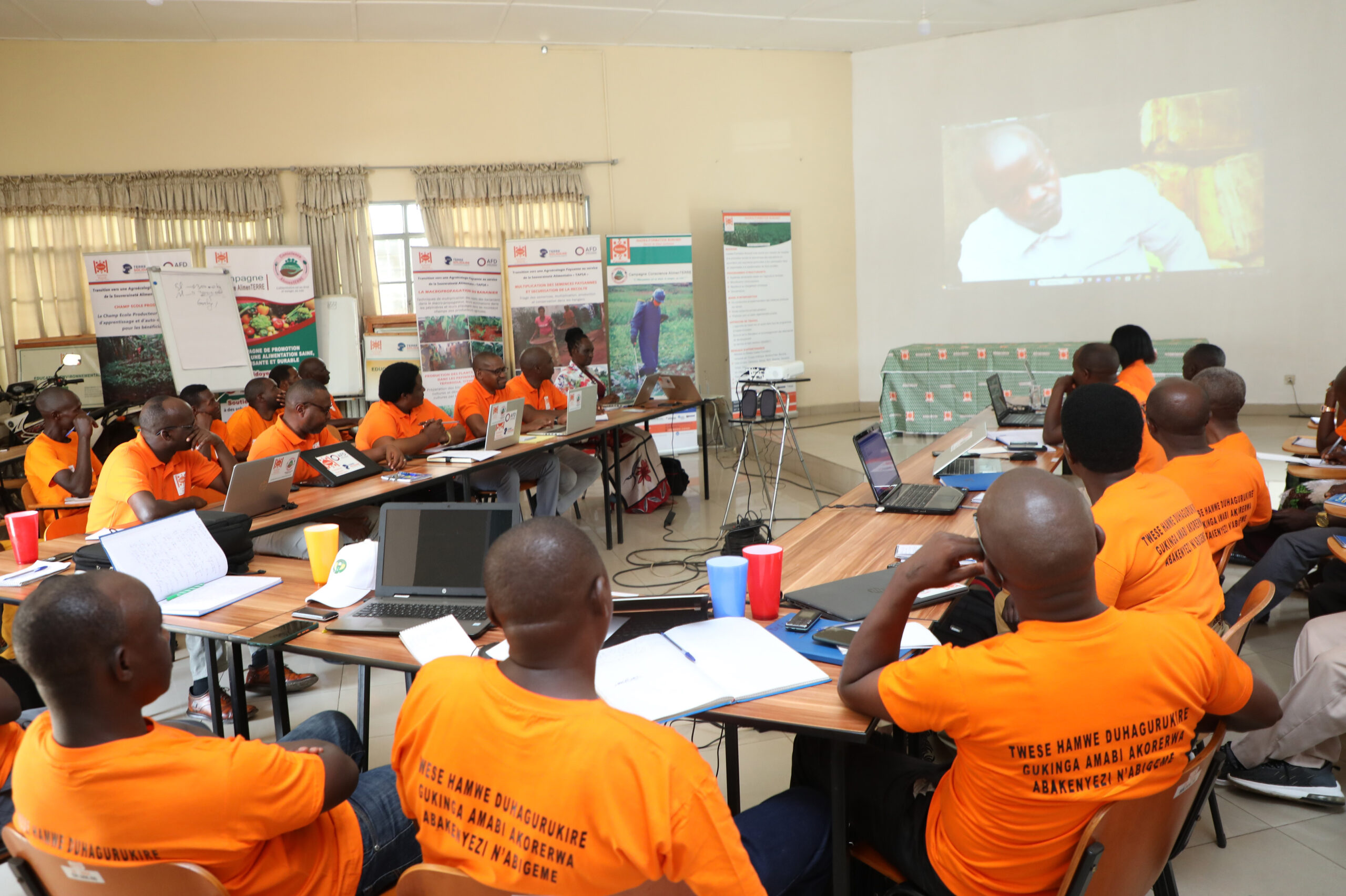 Thanks to the work of Inades-Formation Burundi, couples are emerging as agents of change. Thus, thanks to the screening of six short videos of testimonies from couples who have changed for the better after receiving comprehensive training provided by Inades-Formation Burundi, the audience finally understood the importance of tolerance, dialogue and participatory management of family property in order to achieve sustainable development.
Thanks to the work of Inades-Formation Burundi, couples are emerging as agents of change. Thus, thanks to the screening of six short videos of testimonies from couples who have changed for the better after receiving comprehensive training provided by Inades-Formation Burundi, the audience finally understood the importance of tolerance, dialogue and participatory management of family property in order to achieve sustainable development.
In addition, the participants distinguished the various legal aids for victims who could previously have been accompanied by civil society organisations, community leaders and legal aid professionals. The role of each and every one was shared in accordance with national legal texts, including Burundi’s National Legal Aid Strategy in terms of legal aid and judicial assistance.
They asked questions to understand why, in criminal cases, the public prosecutor’s office continues with a case even if the victim is no longer interested in pursuing it. The answer given was that, in criminal matters, the public prosecutor is the only one competent to bring the perpetrator before the courts in order to guarantee human rights. 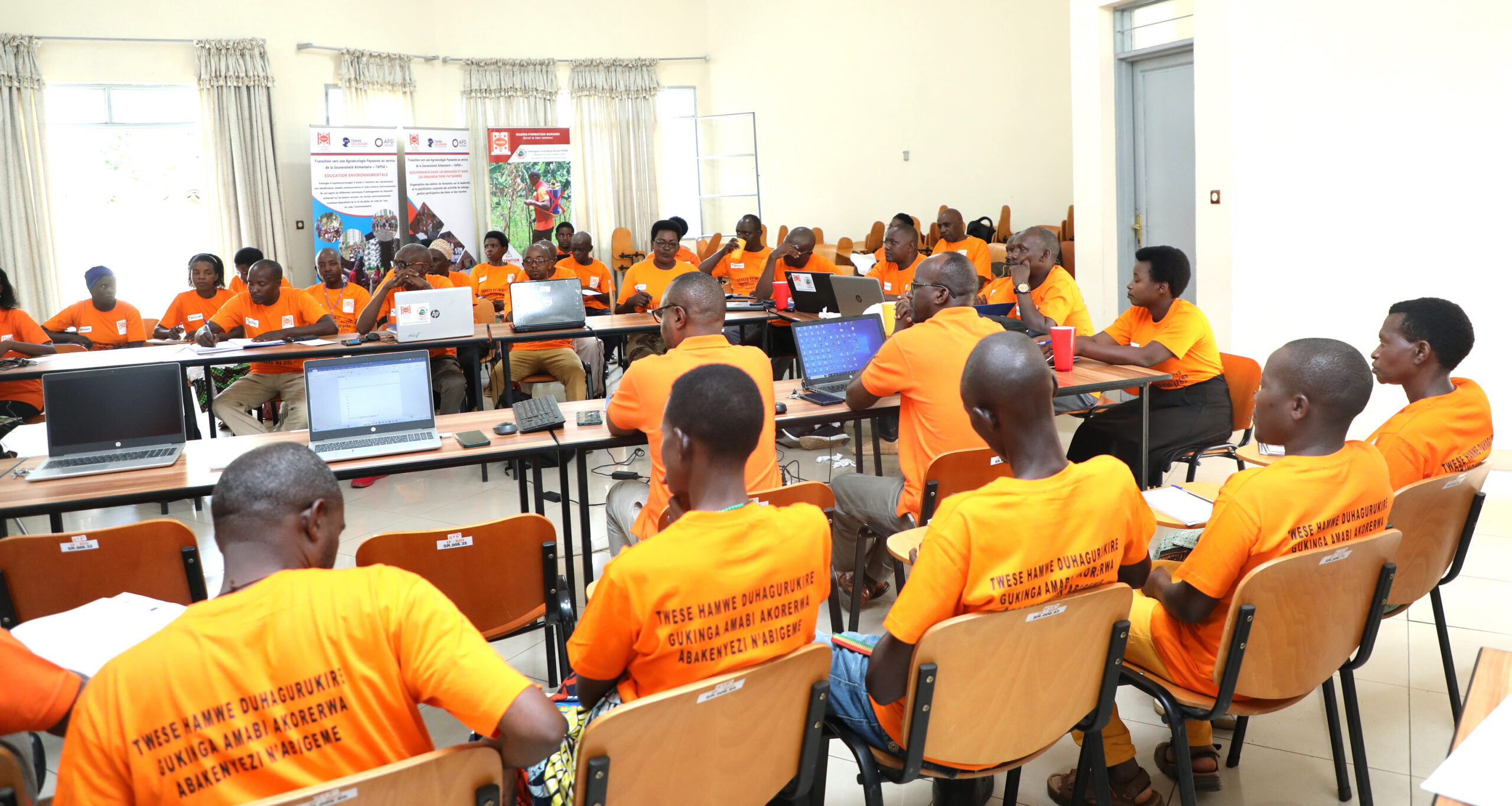 Under no circumstances can the victim decide to withdraw a case that has already been lodged without an appropriate ruling. The public prosecutor must defend the law in order to eradicate violence in the public interest. This is why, in cases of GBV, out-of-court settlements are so strongly advocated. Finally, given that victims are always incapable or in a weakened state, community leaders who are members of civil society organisations are encouraged to help them file a complaint with the appropriate authorities through specialised structures. This approach will undoubtedly strengthen the peaceful cohabitation of communities and enable them to carry out development activities for their households and the community in general.
Under no circumstances can the victim decide to withdraw a case that has already been lodged without an appropriate ruling. The public prosecutor must defend the law in order to eradicate violence in the public interest. This is why, in cases of GBV, out-of-court settlements are so strongly advocated. Finally, given that victims are always incapable or in a weakened state, community leaders who are members of civil society organisations are encouraged to help them file a complaint with the appropriate authorities through specialised structures. This approach will undoubtedly strengthen the peaceful cohabitation of communities and enable them to carry out development activities for their households and the community in general.
The representative of the Ministry in charge of gender informed 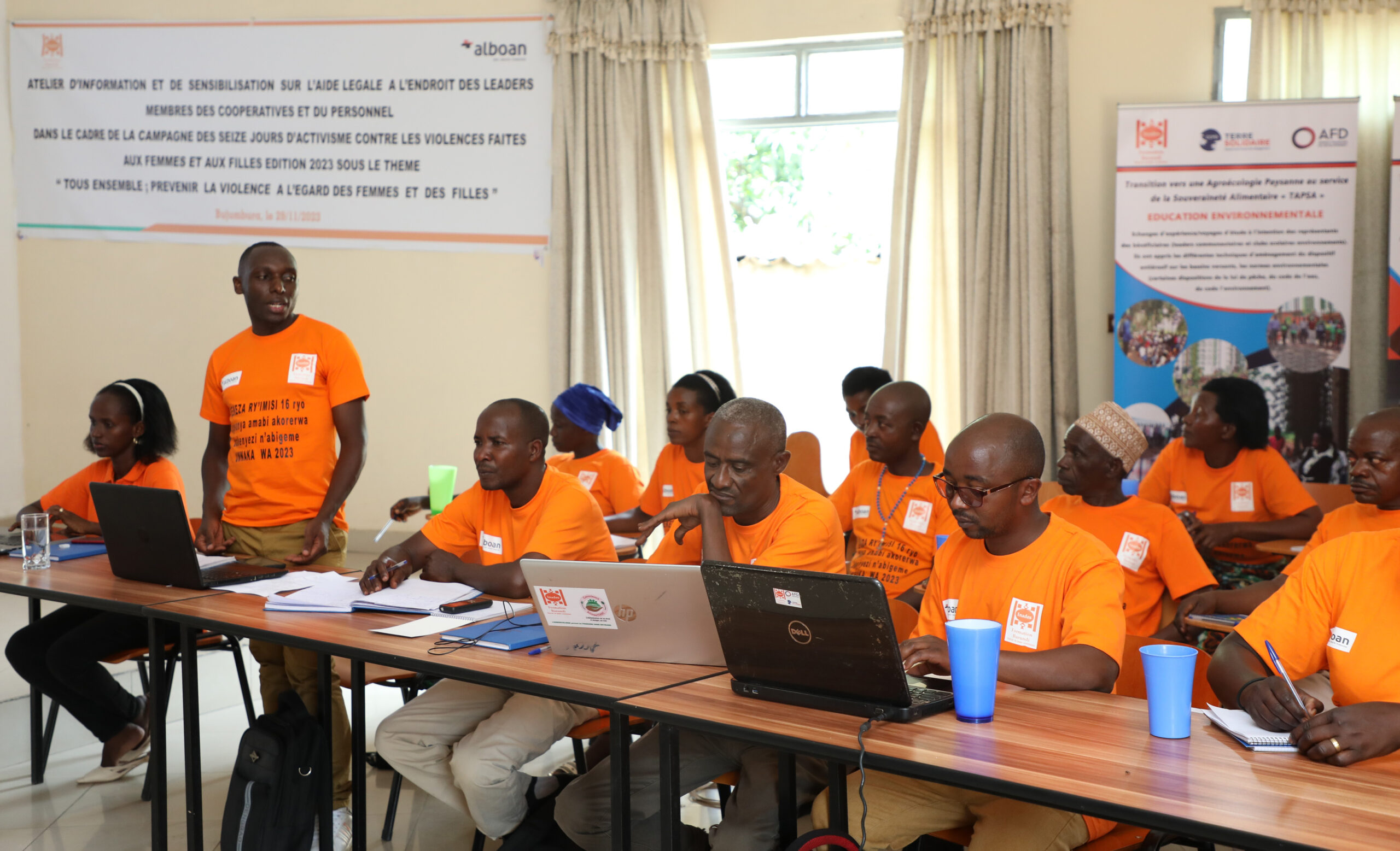 the representative of the Ministry in charge of gender informedparticipants that following the proliferation of several types of rape, many of which are new, certain texts are being revised, namely the Personal and Family Code and the specific law on GBV, in order to diagnose all inhumane acts and reinforce the sanctions that will be included in the Penal Code with the aim of banishing criminal behaviour.
the representative of the Ministry in charge of gender informedparticipants that following the proliferation of several types of rape, many of which are new, certain texts are being revised, namely the Personal and Family Code and the specific law on GBV, in order to diagnose all inhumane acts and reinforce the sanctions that will be included in the Penal Code with the aim of banishing criminal behaviour.
Inades-Formation Burundi has been asked to organise another exchange session involving experts in medical, social and legal assistance. 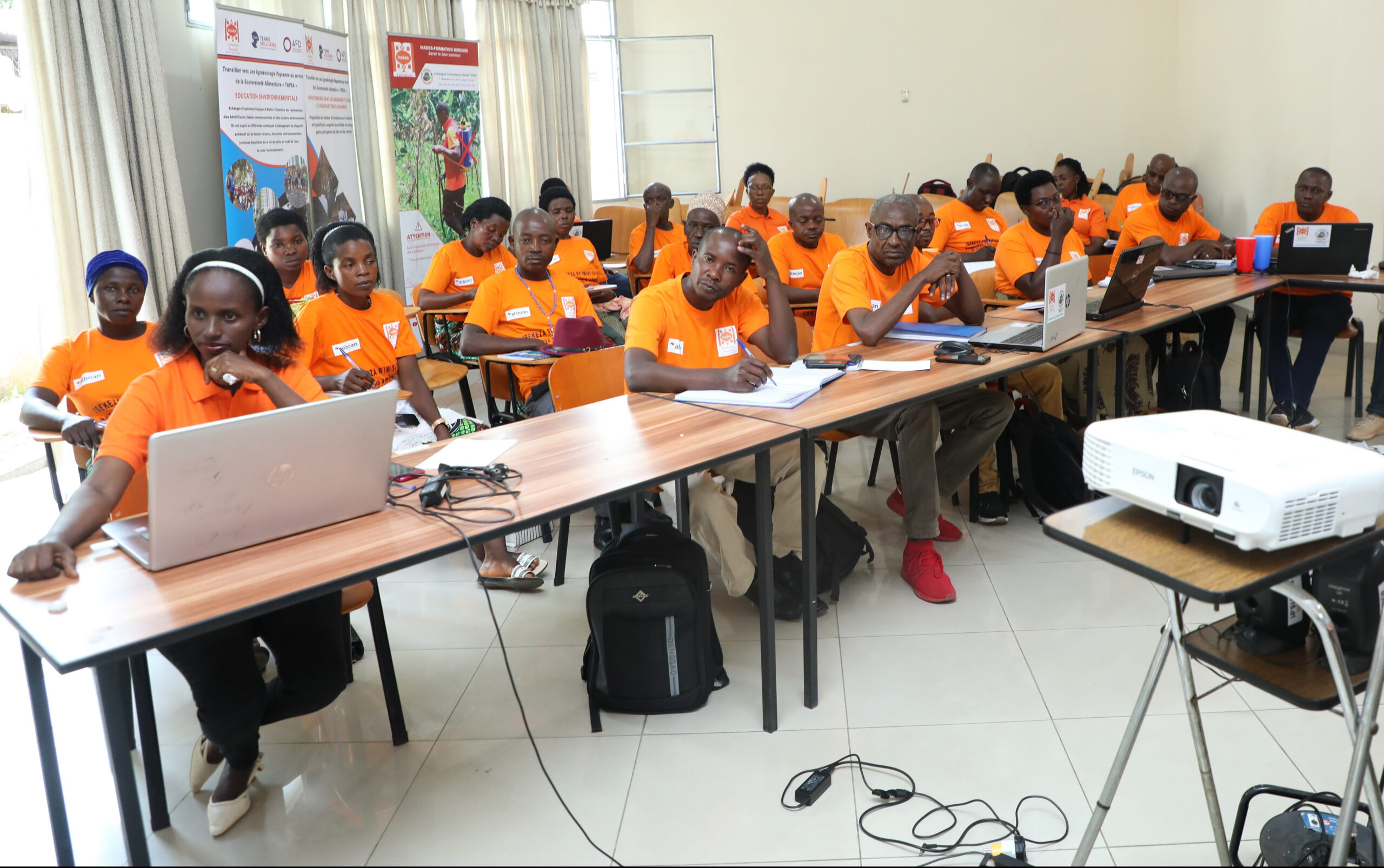
The aim would be to identify in detail all the existing GBV, the challenges in dealing with cases and the related issues at different levels at the limits of competencies in order to formulate sustainable solutions. This option would make it easier to deal with victims in a completely neutral manner, in accordance with the law and with respect for their human rights.
Richard HAVYARIMANA,
Advocacy and Communications Officer

